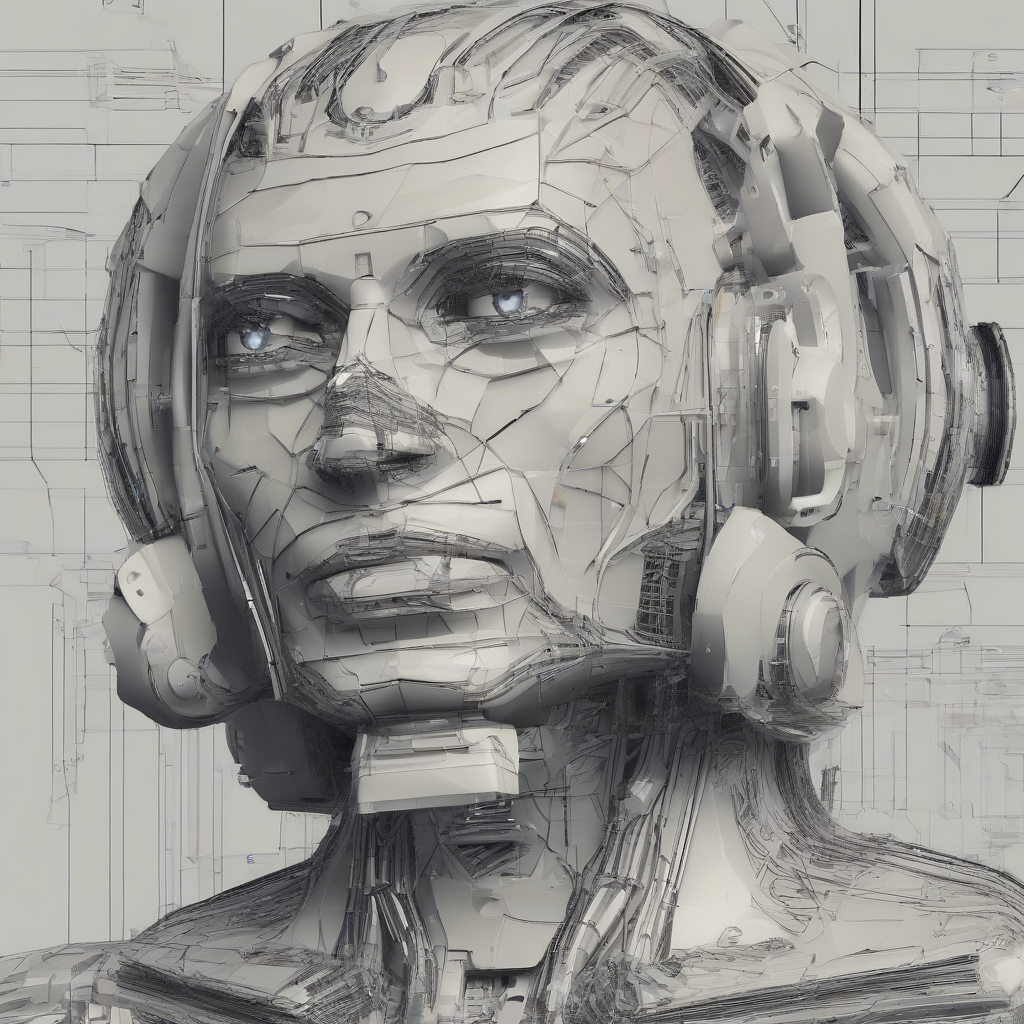Revolutionizing Industry: A Deep Dive into Industrial Technology Services
Industrial technology services encompass a broad spectrum of solutions designed to optimize, enhance, and transform industrial processes. These services leverage cutting-edge technologies to improve efficiency, productivity, safety, and sustainability across diverse sectors, including manufacturing, energy, mining, and transportation. This comprehensive exploration delves into the multifaceted nature of industrial technology services, examining their key components, benefits, challenges, and future trends.
Key Components of Industrial Technology Services
- Automation and Robotics: This involves integrating automated systems and robots to perform repetitive, hazardous, or complex tasks. Benefits include increased efficiency, improved product quality, and reduced labor costs. Specific applications include automated guided vehicles (AGVs), collaborative robots (cobots), and automated storage and retrieval systems (AS/RS).
- Industrial Internet of Things (IIoT): IIoT leverages interconnected sensors, devices, and systems to collect and analyze real-time data from industrial equipment and processes. This data-driven approach enables predictive maintenance, optimized resource allocation, and improved decision-making. Key technologies include cloud computing, edge computing, and data analytics.
- Data Analytics and Business Intelligence: Extracting actionable insights from industrial data is crucial for optimizing operations. Advanced analytics techniques, such as machine learning and artificial intelligence (AI), are employed to identify patterns, predict failures, and improve overall performance. This includes process optimization, supply chain management, and quality control.
- Cybersecurity: Protecting industrial control systems (ICS) and operational technology (OT) from cyber threats is paramount. Robust cybersecurity measures are essential to prevent disruptions, data breaches, and safety hazards. This includes network security, endpoint protection, and vulnerability management.
- Cloud Computing: Migrating industrial applications and data to the cloud offers scalability, flexibility, and cost savings. Cloud-based platforms provide access to powerful computing resources and enable collaboration across geographically dispersed teams. This is particularly valuable for managing large datasets and running complex simulations.
- Digital Twin Technology: Creating a virtual representation of physical assets and processes allows for simulation, optimization, and predictive maintenance. Digital twins enable companies to test different scenarios, identify potential problems, and improve overall operational efficiency.
- Additive Manufacturing (3D Printing): 3D printing offers the ability to create customized parts and tools on demand, reducing lead times and improving supply chain agility. This technology is particularly useful for prototyping, creating customized tooling, and producing small-batch components.
- Augmented and Virtual Reality (AR/VR): AR/VR technologies enhance training, maintenance, and remote collaboration in industrial settings. AR can overlay digital information onto the real world, while VR allows for immersive simulations and training exercises.
- Supply Chain Management Solutions: Optimizing the flow of goods and information throughout the supply chain is crucial for efficiency and profitability. This involves using technology to track inventory, manage logistics, and improve collaboration with suppliers and customers.
- Predictive Maintenance: Utilizing data analytics and machine learning to predict equipment failures allows for proactive maintenance, minimizing downtime and reducing maintenance costs. This approach moves from reactive to proactive maintenance, maximizing equipment lifespan and operational efficiency.
Benefits of Implementing Industrial Technology Services
- Increased Efficiency and Productivity: Automation, data analytics, and other technologies significantly improve operational efficiency, leading to higher output with fewer resources.
- Improved Product Quality: Automation and real-time data analysis contribute to higher quality products through consistent processes and early detection of defects.
- Reduced Costs: Automation, predictive maintenance, and optimized resource allocation lead to significant cost reductions across various aspects of operations.
- Enhanced Safety: Automation of hazardous tasks and real-time monitoring systems minimize risks to human workers, improving workplace safety.
- Increased Agility and Responsiveness: Digital technologies enable faster response to changing market demands and supply chain disruptions.
- Improved Decision-Making: Data-driven insights provide a clearer understanding of operations, enabling better informed and more strategic decisions.
- Better Sustainability: Industrial technology services can contribute to greater energy efficiency, waste reduction, and sustainable practices.
- Enhanced Collaboration: Cloud-based platforms and communication tools facilitate better collaboration among teams and stakeholders.
- Competitive Advantage: Implementing advanced technologies can provide a competitive edge by improving efficiency, quality, and innovation.
- Improved Supply Chain Visibility: Real-time tracking and data analysis provide greater visibility into the supply chain, leading to better planning and execution.
Challenges in Implementing Industrial Technology Services
- High Initial Investment Costs: Implementing advanced technologies often requires significant upfront investment in hardware, software, and integration services.
- Integration Complexity: Integrating new technologies with existing systems can be challenging and time-consuming, requiring specialized expertise.
- Data Security and Privacy Concerns: Protecting sensitive industrial data from cyber threats is crucial, requiring robust cybersecurity measures.
- Lack of Skilled Workforce: A shortage of skilled professionals with expertise in industrial technology can hinder implementation efforts.
- Resistance to Change: Employees may resist adopting new technologies, requiring effective change management strategies.
- Legacy System Compatibility: Integrating new technologies with outdated legacy systems can be particularly challenging.
- Data Management and Analysis: Effectively managing and analyzing large volumes of industrial data requires sophisticated tools and expertise.
- Return on Investment (ROI) Measurement: Accurately measuring the ROI of industrial technology investments can be complex.
- Vendor Selection and Management: Choosing and managing the right technology vendors is critical for successful implementation.
- Scalability and Flexibility: Ensuring that implemented technologies can scale and adapt to future needs is essential.
Future Trends in Industrial Technology Services
- Artificial Intelligence (AI) and Machine Learning (ML): AI and ML will continue to play a crucial role in optimizing industrial processes, enabling predictive maintenance, and improving decision-making.
- Edge Computing: Processing data closer to the source (at the edge) will become increasingly important for real-time applications and reduced latency.
- Digital Twins: The use of digital twins will expand to encompass more complex systems and processes, enabling more sophisticated simulations and optimizations.
- Blockchain Technology: Blockchain can enhance supply chain transparency and security by providing an immutable record of transactions and materials.
- Extended Reality (XR): AR and VR technologies will find wider application in training, maintenance, and remote collaboration.
- Cybersecurity Enhancements: As industrial systems become more interconnected, cybersecurity will become even more critical, requiring robust and adaptive security measures.
- Sustainable Technologies: The focus on sustainability will drive the adoption of technologies that reduce energy consumption, waste, and environmental impact.
- Robotics and Automation Advancements: Robots and automated systems will become more sophisticated, collaborative, and adaptable to diverse industrial environments.
- Increased Data Integration and Interoperability: Seamless data exchange between different systems and platforms will become increasingly important for efficient operations.
- Focus on Human-Machine Collaboration: Future industrial environments will emphasize collaboration between humans and machines, leveraging the strengths of both.
Specific Applications Across Industries
- Manufacturing: Automation, robotics, IIoT, and predictive maintenance are transforming manufacturing processes, improving efficiency, quality, and safety.
- Energy: IIoT, data analytics, and predictive maintenance are used to optimize energy production, distribution, and consumption, improving reliability and reducing costs.
- Mining: Automation, robotics, and remote monitoring technologies enhance safety and productivity in hazardous mining environments.
- Transportation: IIoT, data analytics, and predictive maintenance are used to optimize logistics, improve fleet management, and enhance safety.
- Agriculture: Precision agriculture technologies, such as drones and sensors, are used to optimize irrigation, fertilization, and crop management.
Conclusion (Not included as per instructions)





